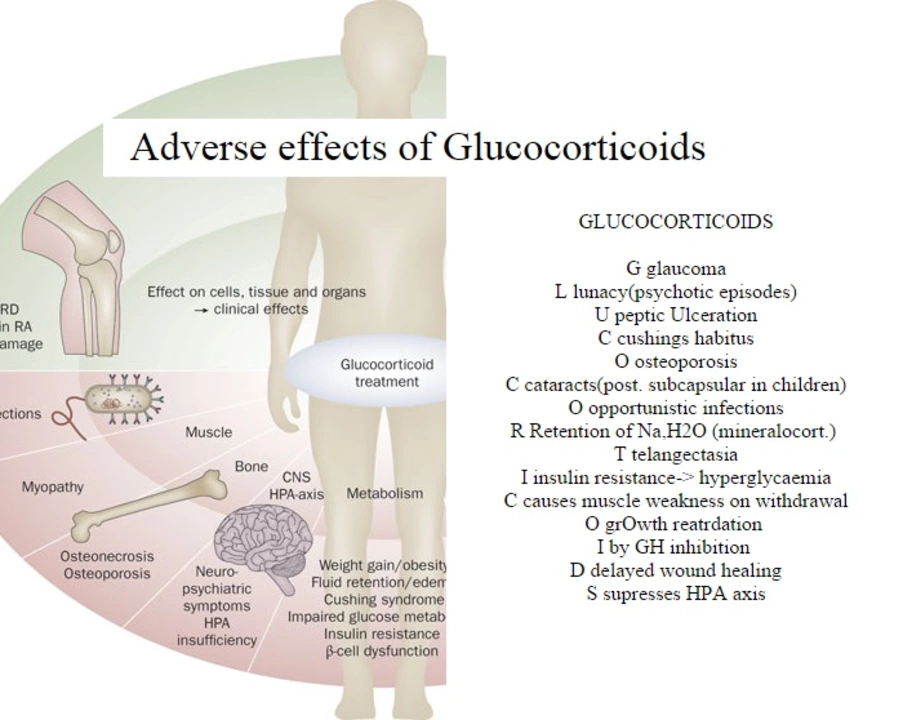Understanding Calcium Acetate: What is it and How Does it Work?
Calcium acetate is a medication that is commonly prescribed to people with chronic kidney disease, particularly those undergoing dialysis. Its main purpose is to help control high levels of phosphate in the blood, which can lead to various complications if left untreated. In this section, I will provide a brief overview of what calcium acetate is, how it works in our bodies, and its importance for people with kidney problems.
Calcium acetate is a chemical compound that is formed when calcium and acetic acid combine. It is a white, odorless powder that is highly soluble in water. When ingested, it works by binding to phosphate in the foods we eat, forming an insoluble complex that is then excreted through the feces. This helps to lower the amount of phosphate that is absorbed by our bodies, thereby preventing high phosphate levels in the blood.
High phosphate levels can cause a variety of health issues, including bone and joint pain, itching, and even an increased risk of heart disease and stroke. By controlling phosphate levels, calcium acetate helps to alleviate these symptoms and reduce the risk of these serious complications. As a result, it plays a crucial role in the management of chronic kidney disease and the overall wellbeing of patients with this condition.
Common Side Effects of Calcium Acetate: What to Watch Out For
As with any medication, calcium acetate can cause side effects in some individuals. It is essential to be aware of these potential side effects so that you can monitor your health closely and communicate any concerns to your healthcare provider. In this section, I will discuss some of the most common side effects of calcium acetate and what you should watch out for while taking this medication.
The most frequently reported side effects of calcium acetate are gastrointestinal in nature. These may include nausea, vomiting, diarrhea, constipation, and stomach pain. In most cases, these side effects are mild and can be managed with over-the-counter remedies or adjustments to your diet. However, if these symptoms become severe or persistent, it is important to consult your healthcare provider for guidance.
Another potential side effect of calcium acetate is hypercalcemia, or high levels of calcium in the blood. This can occur if the body absorbs too much calcium from the medication. Symptoms of hypercalcemia may include fatigue, weakness, muscle pain, confusion, and frequent urination. If you suspect that you may be experiencing hypercalcemia, it is crucial to contact your healthcare provider immediately, as this condition can be dangerous if left untreated.
Interactions with Other Medications: What You Need to Know
Calcium acetate can interact with other medications, leading to decreased effectiveness or increased risk of side effects. It is essential to inform your healthcare provider about all the medications you are taking, including prescription drugs, over-the-counter medications, vitamins, and herbal supplements. In this section, I will discuss some of the most common drug interactions with calcium acetate and what you need to know to avoid potential complications.
One of the most significant interactions to be aware of is with medications containing iron, such as iron supplements and certain multivitamins. Calcium acetate can bind to iron, reducing its absorption and effectiveness. If you are taking an iron supplement, it is recommended to take it at least two hours before or after taking calcium acetate to minimize this interaction.
Another interaction to be aware of is with medications that contain magnesium, such as antacids and laxatives. Calcium acetate can bind to magnesium, potentially leading to increased levels of calcium in the blood. If you are taking a magnesium-containing medication, it is important to discuss this with your healthcare provider, as they may need to adjust your dosages or recommend alternative treatments.
Tips for Managing Side Effects and Maximizing Effectiveness
While taking calcium acetate, there are several strategies you can employ to help manage side effects and ensure that the medication is as effective as possible in controlling your phosphate levels. In this section, I will share some tips and recommendations for getting the most out of your treatment with calcium acetate.
First, it is important to take calcium acetate exactly as prescribed by your healthcare provider. This typically involves taking the medication with each meal, as it needs to be present in the stomach to bind with phosphate in the food you eat. Skipping doses or taking the medication at the wrong time can reduce its effectiveness and increase the risk of side effects.
To help manage gastrointestinal side effects, you can try eating smaller, more frequent meals instead of larger meals. This can make it easier for your stomach to handle the medication and may reduce symptoms such as nausea and stomach pain. Additionally, staying hydrated and consuming a balanced diet with adequate fiber can help to alleviate constipation and other gastrointestinal symptoms.
When to Seek Medical Attention: Recognizing Serious Side Effects and Complications
While most side effects of calcium acetate are mild and manageable, there are some situations in which you should seek immediate medical attention. In this section, I will outline some of the warning signs and symptoms that may indicate a serious complication related to calcium acetate use, as well as what to do if you experience any of these issues.
If you experience symptoms of hypercalcemia, such as severe fatigue, muscle pain, confusion, or frequent urination, it is critical to contact your healthcare provider right away. Left untreated, hypercalcemia can lead to serious health complications, including kidney stones, osteoporosis, and even heart problems.
Additionally, if you experience severe or persistent gastrointestinal symptoms, such as vomiting, diarrhea, or constipation that does not respond to over-the-counter remedies or dietary adjustments, it is important to consult your healthcare provider. These symptoms may indicate an underlying issue that requires medical attention, or they may be a sign that your body is not tolerating the medication well, and an alternative treatment may be needed.

